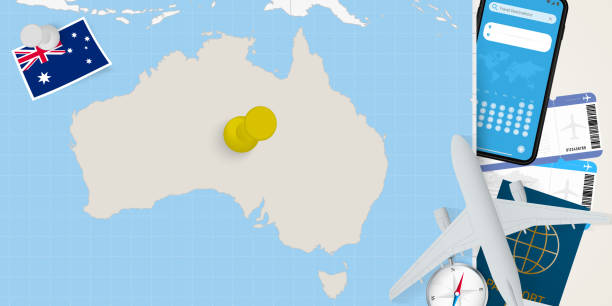Employer sponsored visas are popular visas that enable parties who work in skilled occupations to migrate to Australia either on a temporary or permanent basis. There are a range of employer sponsored visas available for skilled workers and applicants. Some of the popular employer sponsored visas include:
- Temporary Skill Shortage visa – Subclass 482
- Employer Nominated Scheme visa – Subclass 186
- Skilled Employer Sponsored Regional visa – Subclass 494 (provisional visa)
Depending on your occupation and individual circumstances, you may be eligible for different Australian employer sponsored visas. These visas could be either be for permanent residency or permanent visa or a temporary visa.
Are You An Employer? How to Sponsor an Applicant?
To be able to sponsor applicants, there are a number of procedures you must complete as the sponsor or employer. For starters, you have to submit an application to receive sponsorship approval from the Department of Home Affairs (DHA).
You can sponsor an applicant if the following points are applicable to you:
1. If You Cannot Find An Employee in Australia to Fill the Vacant Position
For employer sponsored visas, you have to demonstrate that you cannot find a suitable person who is already in Australia to fill the vacancy in your company or organisation. An important way to do this is through Labour Market Testing (LMT).
This is the process of advertising the position within Australia. Depending on the stream of visa and occupation, the LMT requirements may differ. Moreover, there are also LMT exemptions in some instances. To read more about labour market testing, click here. Furthermore, to understand LMT exemptions, read this article.
Note: The DHA (part of Australian government) often changes the specific requirements and exemptions. It is essential to speak with immigration lawyers to stay updated about changing regulations.
2. Is the Occupation You Wish to Nominate Eligible for the Visa as Per the Skilled Occupation List?
The employer or sponsor who is nominating an application for employer sponsored visas does so under a specific occupation. For example, if the sponsor is a medical organisation and requires laboratory technicians, the sponsor must nominate an applicant who works as a laboratory technician (ANZSCO: 311213).
Not all occupation codes are eligible for sponsored work visas. You have to check the official skilled occupation list to understand whether the particular occupation you nominate is eligible for the skilled work visa.
For example, there may be occupations that are eligible for the Temporary Skilled Shortage (subclass 482) visa but not the Employer Nomination Scheme (subclass 186) visa. You can find the official skills lists on the Department’s website here. To understand how to use these lists, check out this article here.

3. Choose Suitable Employer Sponsored Visas
As we briefly discussed in the introduction, there are a variety of employer sponsored visas available. Depending on the individual circumstance of the applicant and the sponsor, the type if visa that is suitable may differ.
For example, if the sponsor is based in a regional area, it is best to opt for employer sponsored visas for regional areas. This includes the Subclass 187 Regional Sponsored Migration Scheme visa. Once you have chosen the appropriate sponsored visa, you must cross-check if the nominee is eligible for the visa.
You can use the Visa Entitlement Verification Online (VEVO) portal for this purpose.
4. Do You Have Eligibility to Sponsor Nominees?
The list below indicates the types of skilled work visas that sponsors can nominate an employee for:
- Temporary Skill Shortage (Subclass 482)
- Employer Nomination Scheme (Subclass 186)
- Regional Sponsored Migration Scheme (Subclass 187)
- Skilled Employer Sponsored Regional (Provisional Subclass 494)
To check conditions for each of these visa options, click here.
5. Make an Application for Sponsorship Approval
The DHA has to make you an approved sponsor or nominator for you to able to sponsor a visa applicant. You can apply to become a sponsor through this link. There are a number of things you will require for the application.
For example, to become a Standard Business Sponsor, you will have to provide documents to prove that your business is legally established. Moreover, there should be no adverse information against your business. As mentioned before, you may also need to provide evidence of your commitment or attempt to hire local employees.
6. Nominating an Occupation
The sponsor has to nominate one occupation. This is the occupation that the sponsored migrant worker will work under. For example, if you run a restaurant and are looking for a skilled chef from overseas, you need to nominate the occupation of Chef (ANZSCO 351311).
The applicant must only work under the nominated occupation. As mentioned above, the nominated occupation must be eligible for the respective skilled sponsored visas as per the skilled occupation list.
There are certain requirements such as minimum salary threshold that the sponsor must take into consideration. View the official requirements for nominating a position here.
7. Lodging the Visa Application for Employer Sponsored Visas
Once the sponsor receives their sponsorship approval, the nominee has to lodge the visa application. Generally, the applicant will require a valid skills assessment (for nominated occupation) from their relevant assessing authority.
The assessing authority differs depending on the occupation group. For example Engineers Australia can provide skill assessment in case you are nominating the occupation of Mechanical Engineer. View the full list of assessing authorities here.

Seek Advice from Immigration Lawyers for Employer Sponsored Visas
Our immigration lawyers based in Sydney and Melbourne have the experience in dealing with a variety of matters under Australian migration law for both applicants and Australian businesses. We have the experience of helping both sponsors and applicants with their skilled visas.
If you are Australian employers looking for overseas skilled talent, reach out to our lawyers as we have connections with a wide network of individuals across the space. On the other hand, if you are an applicant, we can assist you with the entire visa application process, starting from skill assessments. If you have concerns about working for the same employer, contact our team today.
Our team has a wealth of experience in lodging permanent visas, employer nominated visa, temporary skilled visas, work visas, student visa, partner visas and other popular migration visas in Australia.
Contact our team today.
